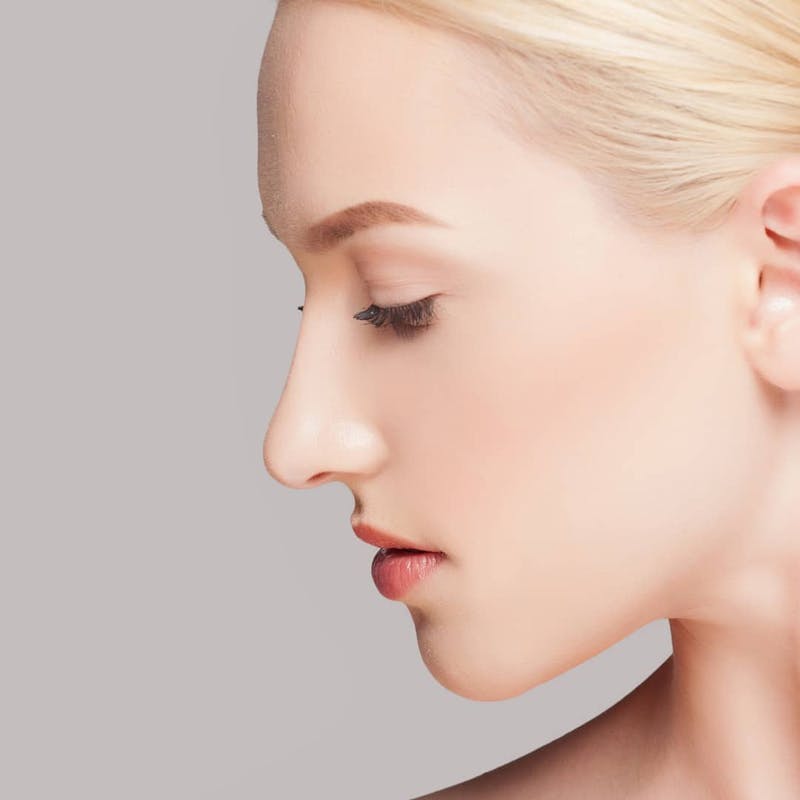
A rhinoplasty, or nose job, is the surgical manipulation of the nose's bones, soft tissue, and cartilage. For some, their nose shape is bothersome, and they desire a nose that enhances their face rather than draws unwanted attention. For others, health concerns like chronic sinusitis and labored breathing have led them to pursue surgical correction.
When people think about the rhinoplasty results, they may question the long-term effects. With rhinoplasty, what happens as we age is a critical consideration. Rhinoplasty is considered permanent but can change over time due to several factors.
What causes rhinoplasty to change over time
There is no way to know for sure whether your rhinoplasty will last decades or how it will age, but here are some factors that can cause it to change over time:
- Surgical techniques used during your rhinoplasty, as advanced surgical procedures mitigate the risks of adverse effects of an aging rhinoplasty
- Your genetics
- The thickness of the skin on your nose
- Smoking and sun exposure
- Age because cosmetic rhinoplasties should only be performed after your nose has stopped growing
- Nasal cartilage may continue growing and changing throughout your life
- Accidents, injuries, illnesses, surgeries, and other unexpected incidents
Today’s rhinoplasty techniques cause fewer changes over time
Traditionally, rhinoplasty focuses on making the nose smaller by removing cartilage or bone. This benefit is that it allows surgeons to create a nose that is smaller, “cuter,” or more feminine. However, this may later cause an unwanted appearance as some of the structure of the nose is removed. Many people with nose jobs early on, such as in their 20s, found their noses collapsing after five to twenty years.
Modern-day rhinoplasty, such as those performed by Dr. Miller, is categorized as being open or closed:
- Open Rhinoplasty: During an open rhinoplasty, Dr. Miller makes a tiny incision in the part of the nose that joins the tip to the base so he can see the entire nasal cavity for nostril resculpting, cartilage grafts, or restructuring a crooked septum. This type of rhinoplasty does result in light scaring and hardness in the tip of the nose, but the scar will fade to be almost invisible, and the nose tip softens over time.
- Closed Rhinoplasty: Dr. Miller makes small incisions inside the nostrils to manipulate the structure of the nose. Closed rhinoplasty leaves no visible scarring and is ideal for minor corrections or reshaping the tip of the nose.
These rhinoplasty techniques achieve the same outward results but don’t take away from the strength of the nose’s foundation. Because of this, an aging rhinoplasty is substantially different from the past. With these newer, more advanced techniques, you get better long-term results, and aging is less of a concern.
What to do if you see the adverse effects of aging on your rhinoplasty
Patients who had rhinoplasties and are unhappy with how it has aged may consider revision rhinoplasty. Revisional surgery creates a stronger foundation for the nose and repairs issues that have presented themselves over the years. Contacting a highly qualified rhinoplasty surgeon like Dr. Miller is the first step in addressing unwanted rhinoplasty changes.
Dr. Miller has performed thousands of rhinoplasties for almost thirty years, from minimally invasive to complete nasal reconstruction. His decades of expertise allow him to determine whether subpar primary rhinoplasties require a surgical correction or carefully administered fillers can be used instead. He is double board certified and has focused his entire career on facial cosmetic surgery, providing consistently outstanding results that speak for themselves. Contact our offices today for your free consultation!

